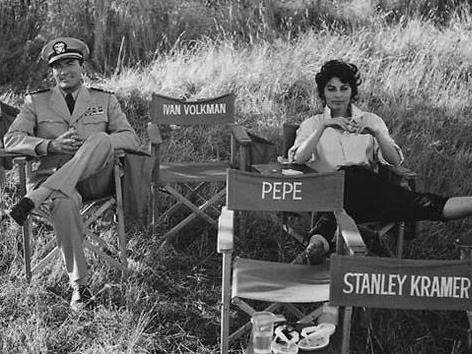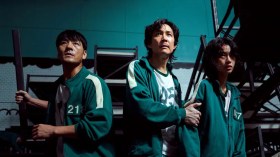Director Stanley Kramer brought Gregory Peck, Ava Gardner, Fred Astaire and Anthony Perkins to enact the end of the world, in perhaps the biggest production the city had seen at the time. For all the Hollywood glitz that accompanied the film, however, its roots were uniquely Australian. On the Beach was an adaptation of the novel of the same name by the British-born, Australian-residing Nevil Shute, a book considered among the most important of local literary works. The feature and its making is only one part of the story; the other stems from taking a terrifying concept – of nuclear war – out of the hands of science fiction and into the lives of everyday people.
The genesis of Shute’s best-known publication, its basis in his engineering and military background, and the surrounding climate of politics and potential conflict forms the foundation of Fallout, Lawrence Johnson’s documentary exploration of the creation and context of On the Beach on the page and screen. The threat of the atomic bomb, ever-present at the time of Shute’s writing and already demonstrated in World War II, is as palpable as it is astutely investigated. This is a period in which John F. Kennedy told the masses “every inhabitant of this planet must contemplate the day in which this planet may no longer be habitable,” as the feature reminds in its opening sequence.
An at-times uneasy balance exists in Lawrence’s re-telling of two distinctive parts, between the history and the horrors of the subject, and the novel, its author, and the accompanying cinematic interpretation. Both facets are inherently interesting, and indeed they compete for attention – individual films about each could easily be made. Where the opening section is sombre yet sincere and instructive, the second-half focus on the making of On the Beach in Melbourne, the ample archival footage of the media frenzy it conjured at the time, and the many clips from the film itself, offers Fallout its spark. The former makes the latter more complex and compelling, but the difference in energy is evident.
Issues also lie in the figures relating the details; in an effort vast in content, too few sources are given their moment. Journalist Gideon Haigh proves the primary guide through the intertwined topics, with Shute’s daughter Heather Mayfield providing personal details, and Kramer’s wife Karen and actress Donna Anderson discussing the production. Those with a real-life connection to the events remain the most fruitful; the academic viewpoint, whilst educational, is stretched thin. There’s no questioning the information conveyed, only the choice of manner of delivery.
Fallout exists in many senses of the term: in a world changed by war, in the artistic response to potential destruction, and in the many repercussions of Shute’s book and Kramer’s film. Though its showcasing of movie-making in Melbourne remains its highlight, like the filmmaker’s other features – biography Eternity, drama Life and documentary Night – Fallout impresses in its ambitious scope above all else.
Rating: 3 stars out of 5
Fallout
Director: Lawrence Johnson
Australia, 2013, 86 mins
Release date: Now showing at ACMI
Rated: M
Actors:
Director:
Format:
Country:
Release:





